Laser Tattoo Removal in Greece
Search and Compare the Best Clinics and Doctors at the Lowest Prices for Laser Tattoo Removal in Greece

Find the best clinics for Laser Tattoo Removal in Greece
No pricing info available
Vietnam offers the best prices Worldwide
Price: $ 3
From 3 verified reviews
PANAGIOTIS KAVALLARIS, 28 January 2020
I've been meaning to write this review for quite a while. It's now been over a year since I first went to Dr. Papadiotis office. Since day one, I was impressed with the cheerful office where appointments were easy to get and there was never any wait. The office is clean and technologically advanced. Dr. Papadiotis and the staff is more than patient and helpful. Everything is explained thoroughly and well. Dental work is never pleasant, but I felt at ease during my entire experience. Great service…but the most important thing…the actual dental work…was amazing. Whole mouth reconstruction with no pain or discomfort, perfect bite, perfect overall result. Probably, the best dentist I’ve ever had (and my last dentist was a good friend). Highly recommended.Panagiotis K.
SkinClinic4u, located in Pirgos Athinon, Athens, Greece offers patients Laser Tattoo Removal procedures among its total of 46 available procedures, across 3 different specialties. Currently, there's no pricing information for Laser Tattoo Removal procedures at SkinClinic4u, as all prices are available on request only. All procedures and treatments are undertaken by the lead specialist at the Clinic, and they are not accredited by any recognized accreditations institutes
From 39 verified reviews
Chris Pap, 30 August 2020
Friendly and helpful environment, with a variety of facilities. Information is provided by the person in charge of fulfilling the needs of each customer. The doctor who took me along with the nurse created a comfortable safe environment throughout the operation and I expect the results that will be seen in the coming weeks for a more complete view of them. The preoperative information was sufficient but the completeness of the information and the analysis of the realistic results was covered on the day of the operation by the doctor.
Dr. Karalexis Apostolos, located in Pirgos Athinon, Athens, Greece offers patients Laser Tattoo Removal procedures among its total of 16 available procedures, across 4 different specialties. Currently, there's no pricing information for Laser Tattoo Removal procedures at Dr. Karalexis Apostolos, as all prices are available on request only. All procedures and treatments are undertaken by the lead specialist at the Hospital, and they are not accredited by any recognized accreditations institutes
Plasis, located in Pirgos Athinon, Athens, Greece offers patients Laser Tattoo Removal procedures among its total of 35 available procedures, across 4 different specialties. Currently, there's no pricing information for Laser Tattoo Removal procedures at Plasis, as all prices are available on request only. All procedures and treatments are undertaken by just a small team of specialists, with 2 in total at the Hospital, and they are not accredited by any recognized accreditations institutes
- Home
- Greece
Compare Before & After Photos of _procedure_photos.phpLaser Tattoo Removal


Front view
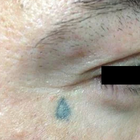
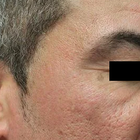
Half-side view


Front view

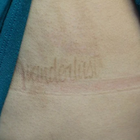
Front view

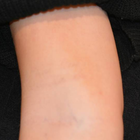
Front view


Full-side view
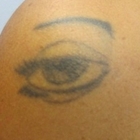
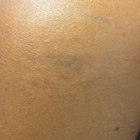
Front view
WHY US?
At Medijump, we're making medical easy. You can search, compare, discuss, and book your medical all in one place. We open the door to the best medical providers worldwide, saving you time and energy along the way, and it's all for FREE, no hidden fees, and no price markups guaranteed. So what are you waiting for?

Free

Best Price

Widest Selection

Risk-Free
What you need to know about Laser Tattoo Removal in Greece

Laser tattoo removal is a technique to eliminate an unwanted tattoo with little to no side effects. It works by breaking up the pigment colors with a high-intensity light beam. You can undergo a laser tattoo removal if you regret having a tattoo, unhappy with the appearance of your tattoo, the tattoo causes infection, or you have an allergic reaction to the tattoo. Once you've done laser tattoo removal, your unwanted tattoo will be gone forever.
Grasping the notion that Laser Tattoo Removal is not a one-off activity, but instead encompasses an array of treatments distributed over multiple weeks, is crucial. Variables like the dimensions, hue, tattoo positioning, along with the person's general well-being determine the count of requisite sessions.
What is the cost of Laser Tattoo Removal in Greece?
In Greece, the Laser Tattoo Removal cost can greatly fluctuate. It hinges upon several considerations such as the size, emplacement, tattoo color, and the amount of needed therapy sessions. Other influencing factors are the laser technology utilized and the reputation of the clinic.
The majority of clinics in Greece extend payment schemes and financing aids to render the process more financially manageable. Bear in mind, though, that Laser Tattoo Removal isn't typically included in medical insurance coverage as it's deemed a beauty-related procedure. Irrespective of the expenditure, it is vital to give precedence to first-rate care and the proficiency of the healthcare staff over cost-effectiveness.
What does a Laser Tattoo Removal Procedure Involve?
The process of Laser Tattoo Removal entails directing particular wavelengths of laser light on the tattooed part of the skin. A highly specialized laser is chosen depending on the colors present in the tattoo for carrying out this technique. The light pulses penetrate the skin's topmost layers to reach the tattoo's pigment. This energy from the light leads to the fragmentation of the tattoo ink into minute particles, which are gradually flushed out by the body's immunity system.
Most people do not need anesthesia, but you can ask for a topical or local anesthetic from your doctor. During the procedure, you will have to wear protective eye shields. Then, your doctor or technician uses a laser to bring pulses of intense light to the top layers of your skin and only the tattoo pigment will absorb this light. Depending on the size, color(s), and age of your tattoo, you might need more than one treatment session.
How Long Should You Stay in Greece?
You can leave Greece after your tattoo removal procedure. However, it may take several treatments to completely remove the tattoo. Given that everyone reacts distinctively, the process might necessitate anywhere from 3 to 10 visits. The interval between each treatment is around 7 weeks to allow the treated area enough time to heal. You are free to retreat to your home, or a place of your choosing, in between these sessions. This sequence persists until your tattoo is completely removed. Nevertheless, it is critical to resume your journey to Greece for each forthcoming Laser Tattoo Removal.
What's the Recovery Time Like?
You will feel pain and discomfort for around a week, but your skin will completely heal in around six weeks. You should be able to go to work as long as you do not feel any pain or discomfort that interferes with your life.
Right after every session, you may observe minor swelling and a reddish tint on the manipulated area. These indications normally wane within a short span that can range from a few hours to two days and can be tamed with chilled packs and popularly accessible pain relievers. Evading exposure to sunlight and demanding activities in the initial few days is of utmost importance to forestall probative issues.
What sort of Aftercare is Required for Laser Tattoo Removal Procedures in Greece?
Your doctor will give you aftercare instructions; make sure to follow the instructions. Keep the treated area clean, do not soak the area, and try to avoid popping blisters. If the treated area itches, apply hydrocortisone cream. Avoid smoking as it can reduce the effectiveness of laser tattoo removal by around 70%.
The treated region should also be protected from the sun and covered with a high SPF sunscreen because the skin will be more susceptible to UV deterioration. Additionally, avoiding activities that could result in significant sweating or close contact with the area of the skin that is receiving treatment is advised. You must avoid the impulse to pick or scratch at the treated area if you want the skin to heal properly. Finally, maintaining effective healing and general health requires drinking plenty of water and eating a diet that is nutritionally balanced.
What's the Success Rate of Laser Tattoo Removal Procedures in Greece?
Laser tattoo removal is the most effective tattoo removal treatment with a success rate of over 95%. It's important to understand that when discussing tattoo removal, the term "effectiveness" typically refers to the degree of tattoo fading rather than complete tattoo removal. The depth, type, and concentration of the ink, the tattoo's colour, as well as the recipient's skin features and overall health, can all have an impact on the final design.
Are there Alternatives to Laser Tattoo Removal Procedures in Greece?
Laser Tattoo Removal has evolved into a highly effective strategy for eliminating tattoos, but you're afforded various other alternatives if Laser Tattoo Removal does not align with your requirements. Intense pulsed light (IPL) therapy, for instance, where light pulses are deployed to dissolve the tattoo ink, could be a viable proposition particularly for larger tattoos. However, for heavily inked or deeper tattoo locations, IPL might not yield the desired outcome.
Dermabrasion is yet another alternative. It's a process that employs skin 'sanding' to eliminate the surface and middle skin layers. Compared to laser treatments, dermabrasion can be less comfortable and requires a more prolonged healing duration. In certain instances, it might also be viable to surgically remove the tattoo with a scalpel, but be prepared for the potential of scarring. Therefore, when deciding on the best course of action, it's important to discuss your unique requirements and expectations with a specialist.
What Should You Expect Before and After the Procedure
Before the Laser Tattoo Removal, there will be a discussion with the expert regarding your health history, the treatment information, and your anticipated outcomes. The area on which the tattoo is located must be hygienic and devoid of any ongoing skin issues. A topical anesthesia may be applied during the session for your comfort. The feeling you might experience when the laser is used could be likened to the feeling of a rubber band being flicked against your skin.
Post-treatment, the tattooed section may look inflamed and red, and it could feel a bit warm to the touch and tender. These symptoms should diminish over a few days. It is vital that you adhere to the follow-up care guidelines given by the clinic to ensure the best healing process and outcome. Generally, this requires cleanliness of the area, avoiding direct sun, and abstaining from activities that can irritate the skin. Regular check-ups of your healing process with your expert can assist with timely detection and management of any potential post-treatment issues.
What are Potential Risks of Laser Tattoo Removal?
Laser Tattoo Removal carries some side effects and risks, such as:
- Infection
- Hypopigmentation and hyperpigmentation (treated skin becomes significantly darker or lighter than its surroundings)
- Scarring, bleeding, swelling, and blisters
It's important that you get proper treatment by a reputable doctor to avoid these side effects and risks.
Whilst the information presented here has been accurately sourced and verified by a medical professional for its accuracy, it is still advised to consult with your doctor before pursuing a medical treatment at one of the listed medical providers
No Time?
Tell us what you're looking for and we'll reachout to the top clinics all at once
Enquire Now

Popular Procedures in Greece
Prices Start From $28

Prices Start From $6,002

Prices Start From $278

Recommended Medical Centers in Greece for Laser Tattoo Removal

- Interpreter services
- Translation service
- Religious facilities
- Medical records transfer
- Medical travel insurance
- Health insurance coordination
- TV in the room
- Safe in the room
- Phone in the room
- Private rooms for patients available

- Interpreter services
- Translation service
- Religious facilities
- Medical records transfer
- Medical travel insurance
- Health insurance coordination
- TV in the room
- Safe in the room
- Phone in the room
- Private rooms for patients available

- Interpreter services
- Translation service
- Religious facilities
- Medical records transfer
- Medical travel insurance
- Health insurance coordination
- TV in the room
- Safe in the room
- Phone in the room
- Private rooms for patients available

- Interpreter services
- Translation service
- Religious facilities
- Medical records transfer
- Medical travel insurance
- Health insurance coordination
- TV in the room
- Safe in the room
- Phone in the room
- Private rooms for patients available

- Interpreter services
- Translation service
- Religious facilities
- Medical records transfer
- Medical travel insurance
- Health insurance coordination
- TV in the room
- Safe in the room
- Phone in the room
- Private rooms for patients available

- Interpreter services
- Translation service
- Religious facilities
- Medical records transfer
- Medical travel insurance
- Health insurance coordination
- TV in the room
- Safe in the room
- Phone in the room
- Private rooms for patients available

- Interpreter services
- Translation service
- Religious facilities
- Medical records transfer
- Medical travel insurance
- Health insurance coordination
- TV in the room
- Safe in the room
- Phone in the room
- Private rooms for patients available

- Interpreter services
- Translation service
- Religious facilities
- Medical records transfer
- Medical travel insurance
- Health insurance coordination
- TV in the room
- Safe in the room
- Phone in the room
- Private rooms for patients available

- Interpreter services
- Translation service
- Religious facilities
- Medical records transfer
- Medical travel insurance
- Health insurance coordination
- TV in the room
- Safe in the room
- Phone in the room
- Private rooms for patients available

- Interpreter services
- Translation service
- Religious facilities
- Medical records transfer
- Medical travel insurance
- Health insurance coordination
- TV in the room
- Safe in the room
- Phone in the room
- Private rooms for patients available
Laser Tattoo Removal in and around Greece
About Greece
Located at the very bottom of the Balkan Peninsula, Greece is a mesmerizing blend of sun-drenched islands and historical marvels. Boasting approximately 2,000 islands, an impressive 170 among them are inhabited and teeming with life. Greece's geographical charm has been nowhere short of a magnet to travelling enthusiasts, pulling in a spectacular count of over 24 million wanderlust-struck visitors each passing year.
Greece turns out to be a preferred hotspot for a particular category of globe-trotters. Travelers come from the farthest stretches of the world seeking its array of top-tier beaches to soak up the sun, the warm ocean for an invigorating dip, the array of ancient relics for their history fix, and to immerse into an engaging culture. The universal allure of Greece, seemingly, never ceases to captivate the hearts of explorers worldwide.
The upward shift in Greece's status as a medical tourism hub has been quite noticeable in recent years. Medical tourists are being increasingly drawn to the country, a relative newcomer in the industry, due to a myriad of reasons. One of the core attractions is its health care system, which holds a high rank on the global scale. However, in spite of boasting of world-class standards, the medical services in Greece are pleasantly affordable. In fact, it flaunts some of the most pocket-friendly medical care prices across Europe and even globally.
The medical services that Greece provides run a comprehensive gamut. Cosmetic surgery and fertility treatments are particularly sought-after medical services, favoured by numerous medical tourists. Orthopedics also sees a consistent flow of patients, along with cardiac care procedures. The well-established oral and dental sector in Greece is another popular draw for people wanting to combine their medical treatments with a relaxing vacation. The availability of such diverse, high quality, yet affordable healthcare options certainly puts Greece on the map as a promising medical tourism destination.
Popular Parts of Greece
The captivating city of Athens, the crown jewel of Greece, presents a dazzling blend of antiquated splendor, enchanting landscapes, and a vibrant modern core. The capital prides itself in harboring an unparalleled assortment of Greek ruins and antiques. Prime among them is the Acropolis, an iconic ancient citadel perched on a rocky outcrop. The Greek Agora, a central public space in ancient Greek city-states, adds an extra charm to Athens’ archaeological grandeur.
On the other hand, the striking island of Santorini stands as another touristic magnet in Greece. Admired far and wide, it carries the reputation of being the most breathtaking island in the country. The enormous allure of Santorini with its distinctive architecture, caldera views, and famous sunsets, keeps it perennially embedded in the bucket lists of travelers worldwide. From the captivating capital of Athens to the charming Santorini, Greece exhibits alluring facets that are truly hard to resist.
It is best known for its unique landscape and cliff-top towns. While Santorini is the most spectacular, Mykonos is the most glamorous. It is noted for its classy seafood restaurants and boutique hotels. Some of the most famous attractions in Mykonos, besides its beaches, are Paraportiani and Little Venice.
Weather and Climate in Greece
Set on the Mediterranean, Greece experiences a climate that is typically balmy and sun-soaked throughout the year with a cycle of four distinct seasons. Summers, spanning June to August, bring about warm and agreeable temperatures. This peak season draws in a large number of tourists, making it an ideal time to take a dive into the azure seas.
As September ushers in the fall season, the weather across Greece turns cooler but largely stays clear. On the flip side, winters starting from December to February reveal a different picture. Coastal cities remain warm but the country's northern regions experience significantly lower temperatures, occasionally even witnessing snowfall.
As March marks the arrival of spring, the weather begins to warm up again, though evenings can retain a cool nip in the air. Each season has its unique charm and adds to the overall allure of Greece.
Getting around in Greece
Athens International Airport holds the distinction of being the largest and busiest hub for international air travel in Greece. This is typically the point of arrival and departure for a majority of international tourists exploring Greece. The extensive network of this airport caters to both domestic and international flights, connecting many global cities like Dubai, London, Moscow, and New York to the heart of Greece.
Among affordable means of transport, the ferry services stand out, particularly for travelling among the islands. They run on a frequent basis, with services especially ramped up during the sun-soaked summer months. For land travel, buses come across as largely comfortable and hassle-free, although the network is somewhat limited.
For intra-city travel within major Greek metropolises, the extensive network of buses and trolleybuses prove to be reliable options. Particularly in Athens, the capital city, the metro and tram systems offer additional efficient and cost-effective ways to explore the local attractions. Additionally, taxis, which are conveniently available quite everywhere, turn out to be extremely pocket-friendly. Whether hopping between islands or navigating city streets, Greece offers a range of transportation options to suit the needs and budgets of different travelers.
Tourist Visas in Greece
Greece is part of the Schengen Area, which means that citizens of most countries can travel to Greece without a visa for up to 90 days within a 180-day period.
Citizens of the following countries do not need a visa to visit Greece:
- All European Union citizens
- Citizens of Andorra, Iceland, Liechtenstein, Monaco, Norway, San Marino, Switzerland, and Vatican City
- Citizens of Australia, Canada, Japan, New Zealand, the United Kingdom, and the United States
Citizens of all other countries need to obtain a visa to visit Greece.
You can apply for a Greek tourist visa at the Greek embassy or consulate in your home country. The visa application process can vary depending on the country where you are applying, but there are some general requirements that all applicants must meet, such as having a valid passport, proof of onward travel, and proof of financial means.
Additional Information
- Local Currency: The official currency in Greece is the euro (€). €0.94 is equivalent to approximately US$1.
- Money & Payments: Reliable ATMs can be found easily in all cities and towns, particularly on the mainland. Major credit cards, such as MasterCard and Visa, are widely accepted. Tipping is expected in most places, usually around 5% to 10%. Make sure to tip in cash.
- Local Language: The most widely spoken language in Greece is Greek, which is the official language of the country. Most people in tourist areas and the younger generations can speak and understand some English, German, French, or Italian.
- Local Culture and Religion: Greek Orthodox Church is the largest religion in Greece, representing 90% of the total population. There are also small communities of Muslim, Roman Catholic, and Jewish.
- Public holidays: The most celebrated holidays in Greece include Easter, Apokreas (Carnival Season), and Saint’s day of the Virgin Mary, Ohi Day, Independence Day, and Christmas Day.
Popular Searches
- Plastic Surgery in Thailand
- Dental Implants in Thailand
- Hair Transplant in Thailand
- Breast Augmentation Thailand
- Gastric Sleeve in Thailand
- Gender Reassignment Surgery in Thailand
- Laser Hair Removal in Bangkok
- Botox in Bangkok
- Dermatology in Bangkok
- Breast Augmentation in Bangkok
- Coolsculpting in Bangkok
- Veneers in Turkey
- Hair Transplant in Turkey
- Rhinoplasty in Turkey
- Stem Cell Therapy in Mexico
- Rhinoplasty in Mexico
- Liposuction in Mexico
- Coolsculpting in Tijuana
- Rhinoplasty in Korea
- Scar Removal in Korea
- Gastric Sleeve in Turkey
- Bone Marrow Transplant in India
- Invisalign in Malaysia
- Plastic Surgery in the Dominican Republic
- Tummy Tuck in the Dominican Republic
- Plastic and Cosmetic Surgery in Poland
- Rhinoplasty in Poland
- Hair Implant in Poland
- Dental Implants in Poland
- IVF in Turkey


